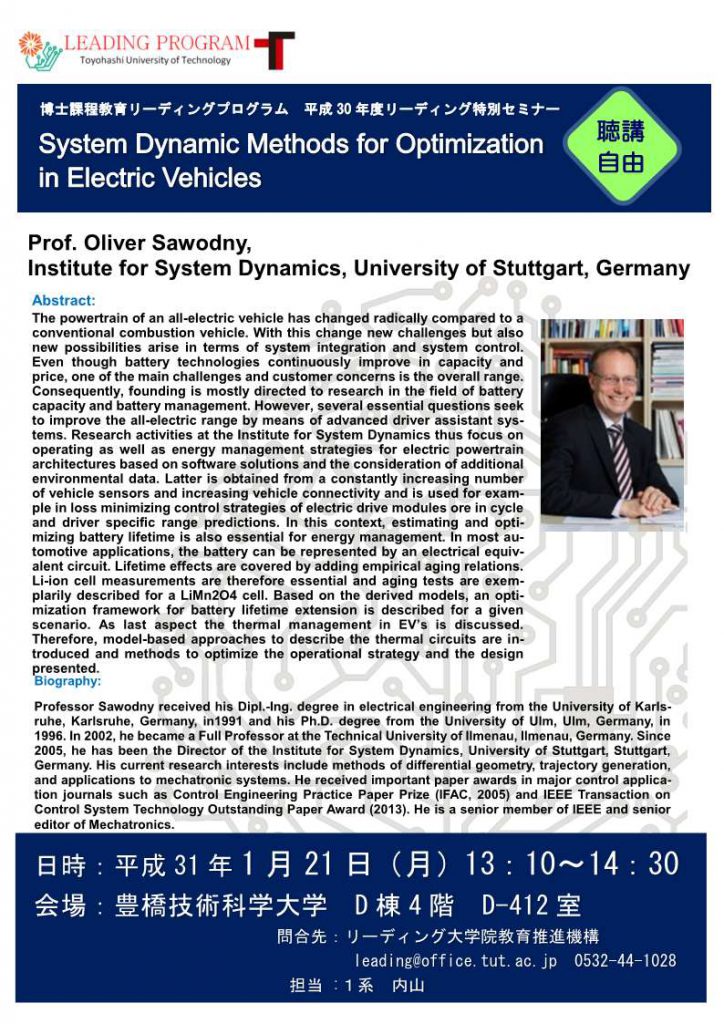Oliver Sawodny氏によるリーディング特別セミナーを開催します(2019年1月21日)
2018.11.27
下記の通り、シュツットガルト大学(ドイツ)のOliver Sawodny氏をお招きして、リーディング特別セミナーを開催いたします。
本セミナーはリーディングプログラム履修生のために開催するものですが、席に余裕がありますので学内・学外の皆様もぜひご参加ください(事前登録不要)。
開催日時: 2019年1月21日(水)13:10~14:30
開催場所: D-412
講演内容: System Dynamic Methods for Optimization in Electric Vehicles
講 師: Prof. Oliver Sawodny, Institute for System Dynamics, University of Stuttgart, Germany
概 要: The powertrain of an all-electric vehicle has changed radically compared to a conventional combustion vehicle. With this change new challenges but also new possibilities arise in terms of system integration and system control. Even though battery technologies continuously improve in capacity and price, one of the main challenges and customer concerns is the overall range. Consequently, founding is mostly directed to research in the field of battery capacity and battery management. However, several essential questions seek to improve the all-electric range by means of advanced driver assistant systems. Research activities at the Institute for System Dynamics thus focus on operating as well as energy management strategies for electric powertrain architectures based on software solutions and the consideration of additional environmental data. Latter is obtained from a constantly increasing number of vehicle sensors and increasing vehicle connectivity and is used for example in loss minimizing control strategies of electric drive modules ore in cycle and driver specific range predictions. In this context, estimating and optimizing battery lifetime is also essential for energy management. In most automotive applications, the battery can be represented by an electrical equivalent circuit. Lifetime effects are covered by adding empirical aging relations. Li-ion cell measurements are therefore essential and aging tests are exemplarily described for a LiMn2O4 cell. Based on the derived models, an optimization framework for battery lifetime extension is described for a given scenario. As last aspect the thermal management in EV’s is discussed. Therefore, model-based approaches to describe the thermal circuits are introduced and methods to optimize the operational strategy and the design presented.
